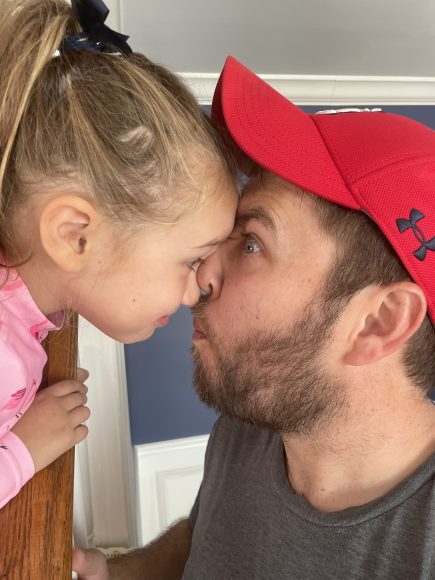Sometimes, maybe we should go to bed angry …
We have all heard it, written it on advice cards for newlyweds, and taught it to others: Never Go To Bed Angry! I think the intentions are good and true. After all, we don’t want to get into the habit of holding grudges, staying angry when the conflict can resolve. If you just talk it through, things will be rainbows, and you can go to bed with a peaceful mind.
And if you can do that, keep it up!
But if you can’t, don’t make yourself crazy.

See, the truth is, we are not wired to handle conflict well when we are upset. We are wired to keep ourselves safe. We are designed to primarily defend ourselves, which is not always the greatest match for healthy communication, listening, and compromise.
Think back to the last argument you had with someone. Did your internal monologue consist of considering the other point of view or grumblings about how right you were? Were you open to new ideas or open to new comebacks?
Now think of a time where you took a walk or a break during an argument. You let yourself breathe. Did that monologue change? Did you come back to the conversation more ready to talk things through like a reasonable human being?
Maybe not. But if not, it might be a sign that you needed more time. Or it might be a sign that there was a bigger problem at hand that no amount of walks or talking or having a night’s sleep could help.
But if you did, it is because you gave your mind a chance to just chiiiiillll. We need that time to be able to:
- Reason
- Think beyond the immediate time frame
Come up with new comebacks- Pump up for the next round
- Plan
- Think cognitively rather than emotionally
- Allow our muscles to relax
Critique their family members- Come up with new ideas
- …the list goes on!
All jokes aside, these skills are harder, if not actually impossible, when we are stressed, highly emotional, scared, or in danger. That is true for every human including you! That also includes our children and partners. While it may feel like avoidance at times, taking a break can be a lifesaver. It creates the space for actual communication rather than going through an unproductive battle. Showing your children the use of coping skills can be an extra win as well!

What does that look like in a head-to-head with the kids? It looks like backing off for a minute. I know, that can feel like a loss when looking at it from a power stance. But it does not mean that you are giving in. You are teaching your child that regulating emotions is a part of life and a part of relationships. You are teaching your child that being in a relationship with someone is not always easy, but learning how to manage yourself can be key. You are also giving your child’s brain enough time to relax so that they can hear what you are saying rather than waiting until you breathe to get their two cents in.
This approach might not work for you. But it is at least worth considering how your thought process and communication style differs when you are highly emotional, for whatever reason. And also consider how that impacts relationships. Let me know if you give it a try!










